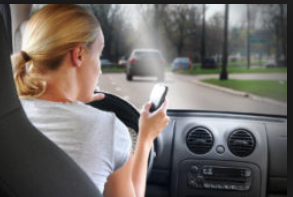Feds changing fuel economy rules: Federal efforts to coordinate fuel economy
 standards between its departments and with the state of California will be clarified in weeks ahead. National Highway Traffic Safety Administration Acting Administrator Heidi King said Tuesday at the Detroit auto show that a proposal would be released on March 30 with new fuel economy standards for light duty vehicles. President Donald Trump last year reinstated a review of NHTSA and Environmental Protection Agency rules for fuel economy and emissions to cover model years 2022 through 2025, which was part of his campaign to cut federal regulations. News of more talks between California and the Trump administration also came out this week. California Air Resources Board will be meeting in Washington this month with federal officials in an effort to reach agreement on phase two revisions that could sort out differences and avoid legal battles between automakers, the White House, and California.
standards between its departments and with the state of California will be clarified in weeks ahead. National Highway Traffic Safety Administration Acting Administrator Heidi King said Tuesday at the Detroit auto show that a proposal would be released on March 30 with new fuel economy standards for light duty vehicles. President Donald Trump last year reinstated a review of NHTSA and Environmental Protection Agency rules for fuel economy and emissions to cover model years 2022 through 2025, which was part of his campaign to cut federal regulations. News of more talks between California and the Trump administration also came out this week. California Air Resources Board will be meeting in Washington this month with federal officials in an effort to reach agreement on phase two revisions that could sort out differences and avoid legal battles between automakers, the White House, and California.
Infiniti electrifying most of its upcoming cars: Infiniti is joining Volvo and other near-luxury and luxury brands by electrifying its fleet by 2021 (with the exception of a few large SUVs). For these models, the company isn’t specifying whether it will include hybrids, plug-in hybrids, and batter electric vehicles in the electrified lineup. It will include BEVs that will have at least 200 miles of range, according to Infiniti and Nissan CEO Hiroto Saikawa. That range would be slightly farther than the new Leaf can go from parent company Nissan. “We are trying to position Infiniti as the premier electrified brand” as part of the five-year plan that will extend through 2022, he said.
On-demand mobility a very tough business to succeed in: Another sad tale is being told in the less-than-a-decade old business of on-demand mobility. See Jane Go, a ride- hailing app for women riders transported by women drivers, closed its shutters on Tuesday, January 9.
hailing app for women riders transported by women drivers, closed its shutters on Tuesday, January 9.
“As a young start-up, we have been unable to secure the necessary capital funding to continue our operations,” wrote CEO Cassandra Miller in a note posted on Facebook. “I know discontinuing our service will be a significant loss for many that we serve.”
The service was created by Laguna Niguel, Calif., residents Savannah Jordan and her father, William Jordan, in 2016 to offer women a safer alternative in the ride-hailing market.
Just as Facebook has inspired hundreds of social networking startups targeted to special interests, mobility services are seeing a wave of specialized services emerge. You can have your kids picked up and taken home after their music lesson. Someone else can do all your grocery shopping that will be delivered to your front door or kitchen. Meals can be delivered quickly and cheaply to you at home, work, or a social gathering. Then there’s always the Uber and Lyft model of having convenient, quick, affordable rides – taking away the hassles of being stuck behind the wheel in traffic and having to find a parking space.
Ride-hailing giant Uber has been the Facebook of mobility, following its beta launch in 2010 and San Francisco rides starting up in 2011. The past year has been a near-death experience for Uber, with newly hired CEO Dara Khosrowshahi now expected to revive the company.
Navigant Research recently published an analysis piece comparing the challenge Netflix faces competing with Disney to what companies like Uber and Lyft face compared to global automakers. Netflix is burning through a great deal of cash in creating its own catalogue of films and TV series to compete. Uber faces competition from companies like General Motors, Volkswagen, Daimler, and Ford, which are starting up and acquiring their own mobility service business units.
Green Auto Market Extended Edition subscribers this week can view a study on where 10 leading mobility companies stand with investors in the number of funding rounds and total funding amount raised so far. Companies reviewed include Airbnb, Didi Chuxing, DoorDash, Gett, GrubHub, HopSkipDrive, Instacart, Lyft, Postmates, and Uber.



